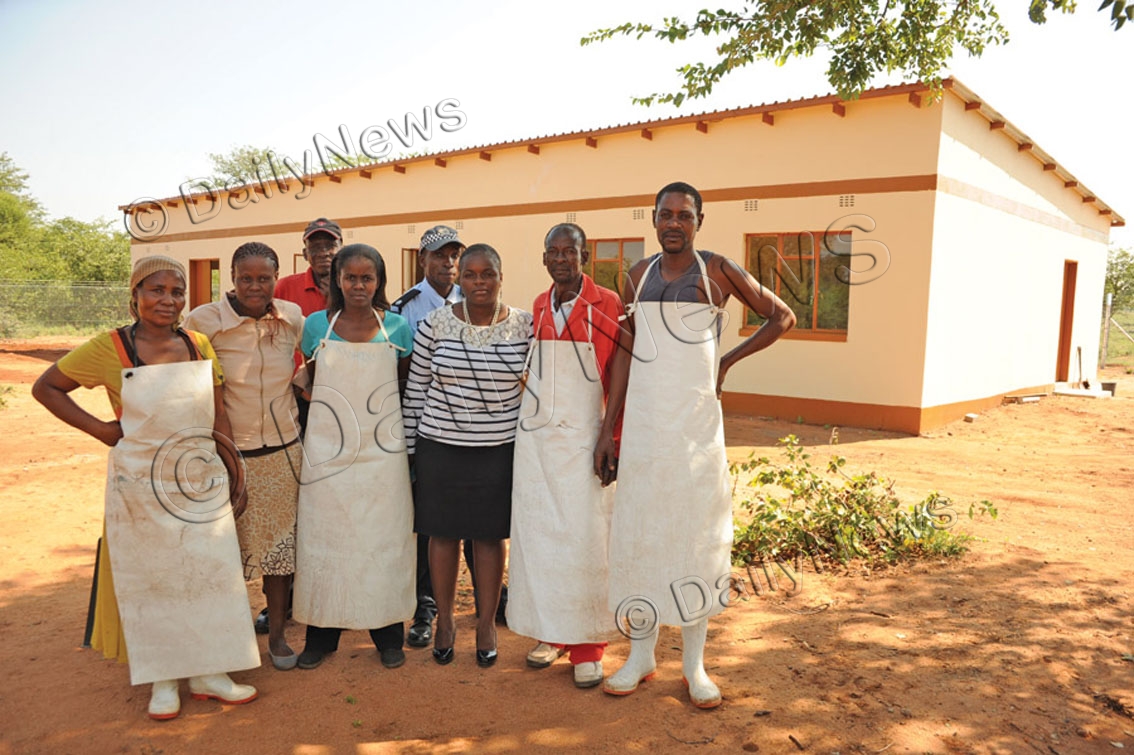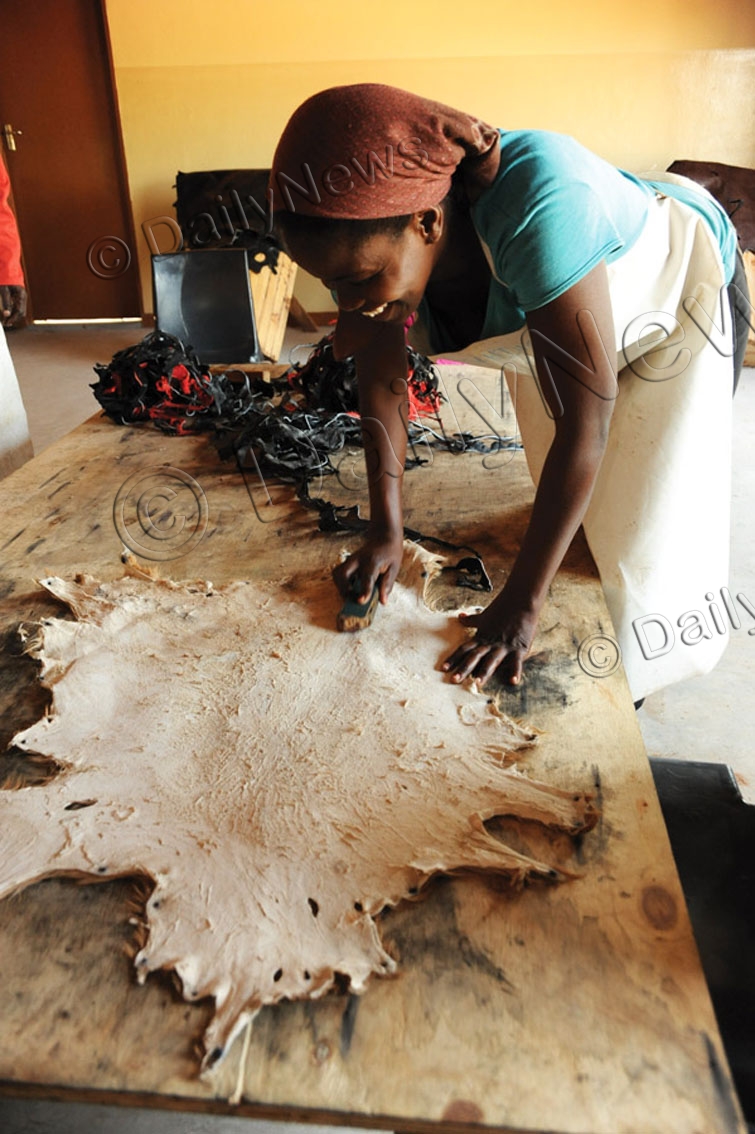Tannery breathes life into Tshokwe
29 Jun 2015
Besides financial gain and employment creation, the leather industry also serves as a tool for skills transfer in communities.
Tshokwe settlement, in the Mmadinare Sub-district, about 58km east of Selebi Phikwe, is one such place where a small leather tannery project has benefited the community.
With a population of about 1 800, Tshokwe has little or no economic activity save for two shops, two bars and eight tuckshops.
Residents rely on Ipelegeng to generate income to make ends meet. Some residents engage in either pastoral or arable farming.
Consequently, the introduction of the leather tannery project, which is the first in the village, has come as ray of hope for the community, especially youth, who are utilising it to gain skills and for financial benefit.
Tshokwe Social and Community Development (S&CD) officer, Sekhulile Nfanenyama, says initially, residents had in some kgotla meetings, proposed to have a leatherworks project in the village as a form of employment creation especially for the youth who had to fight poverty.
Nfanenyama says government, through the Rural Area Development Programme (RADP), gave the proposal the greenlight and sponsored it to the tune of P250 000.
In August last year, she says, they constructed a structure for the project.
In March, operation started as 12 beneficiaries, among them four males, got training in leather tannery for about five weeks, courtesy of the Department of Animal Production.
“Funds were also used to purchase equipment, chemicals, protective clothing and material such as hides and skins as well skills training, among other things,” says Nfanenyama.
Meanwhile, RADP assistant project officer, Matseo Setlhare, says they still need more funds for the project to manufacture finished leather products as well.
“Our ambition is not only to see Tshokwe Leather Tannery Group acquire skills and knowledge in leather tannery but also train them in finished leather products, such as footwear, bags, hats, clothes, among others,” says Setlhare.
Also, she says they are yet to find a market for their products around the country and beyond. She is happy that government introduced the poverty eradication initiative in their settlement.
That,says Setlhare, is because beneficiaries have lost interest in Ipelegeng.
Meanwhile, Meshack Bakwena, who is part of the project, says it came in handy in that he is no longer dependent on the poverty eradication programme to make ends meet.
Bakwena says he uses profit from the project to look after his family.
Matshidiso Manowe also echoes Bakwena’s sentiments, adding that now she is able to afford school fees. Manowe says youth from her village will gain skills from the project to sustain their lives.
Other beneficiaries, Gosalamang Kanono as well as Dikhutsafalo Mozanaphane, thanked government for initiating the project. They express hope that the project would grow and expand to become internationally competitive.
In the meantime, the Tshokwe Tannery Project Group vision is to source skins and hides from the village and surrounding areas.
Incidentally, the project is expected to catalyse development in Tshokwe besides employment creation for youth. Ends
Source : BOPA
Author : Tshepo Mongwa
Location : Tshokwe
Event : Interview
Date : 29 Jun 2015








